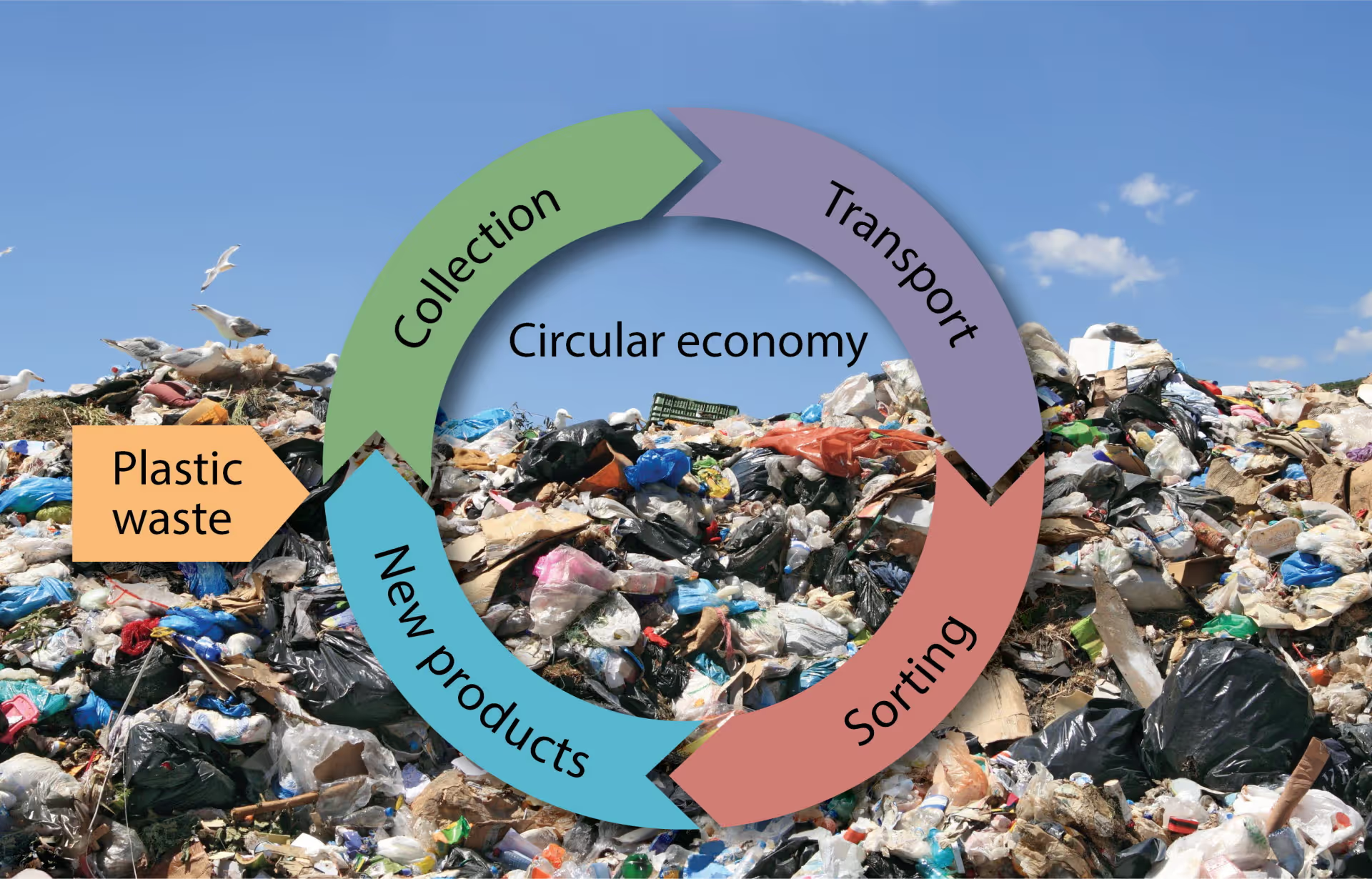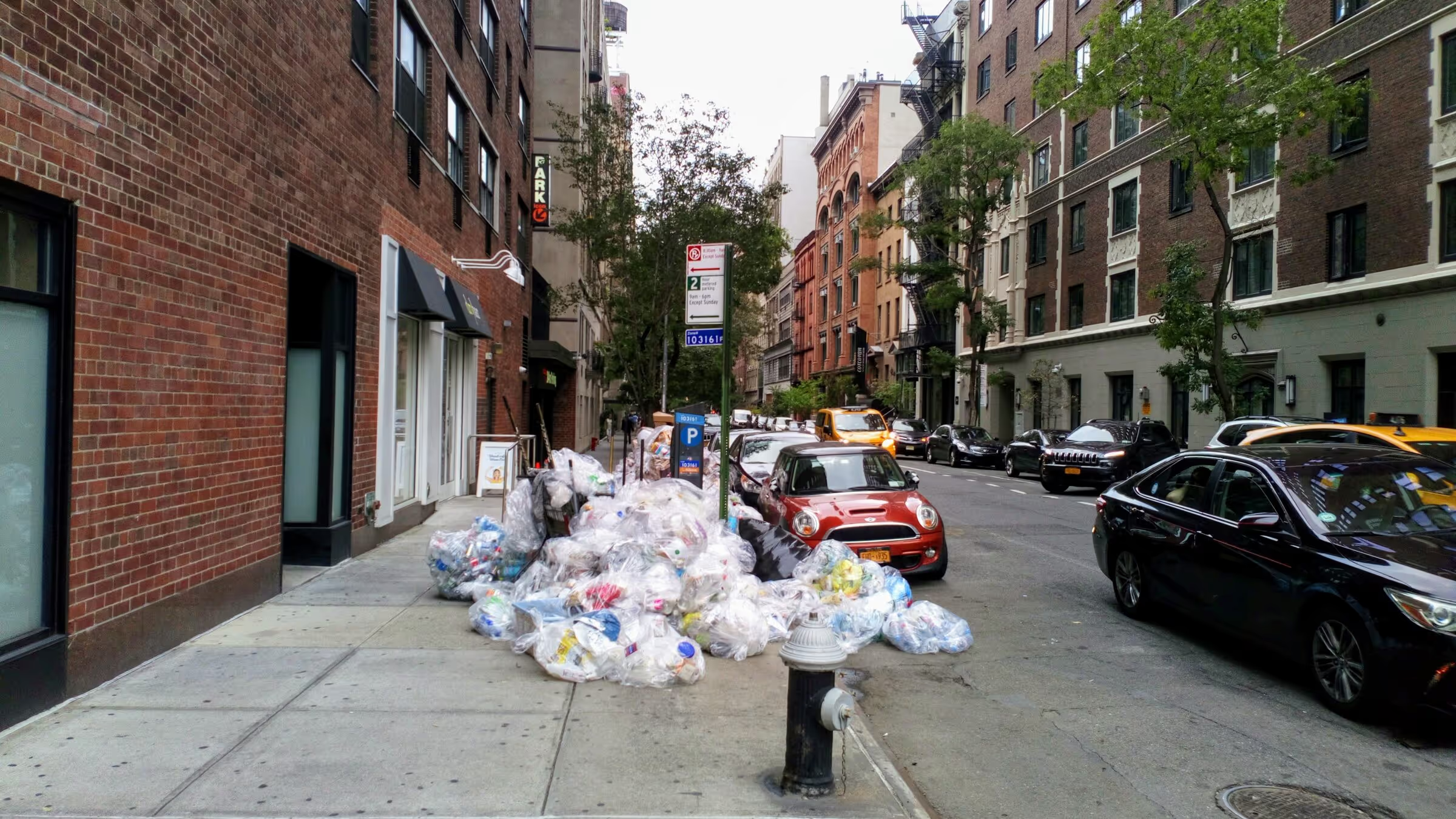The economics of waste plays a vital role in India’s ecosystem;
- The crux of an organized waste system is to ensure that trash generators throw their wet waste into one bin and the dry waste into another.
- A combination of financial, social, or moral incentives and penalties can be used to make segregation of waste a daily habit.
- All waste that can be, should be sent through the circular economy. Incineration and landfills are last resort processing methods.
More than 4,000 cities are currently competing for the title of a cleanest Indian city under the Swachh Bharat Mission. With the threat of surprise inspections this year, nervous local government officials are doing their best to keep their city in contention.
Unfortunately, short-term fixes cannot hide the fact that 75 percent of India’s waste is dumped into overflowing landfills. Once the frenzy of the competition subsides, do we have to continue living with the filth? The answer is no.
Luckily for us, the rules of economics apply to even garbage. Economics is fundamentally the study of incentives. We can bring about sustainable change in India’s waste management ecosystem by providing the right incentives to all the stakeholders involved.
The crux of an organized waste system is to ensure that trash generators throw their wet waste into one bin and the dry waste into another. The technical and business viability of processing methods such as composting and biogas depends on this simple step. A combination of financial, social, or moral incentives and penalties can be used to make segregation of waste a daily habit.
Let us take the example of a mother of three living in an Indonesian slum. She takes time out of her busy day to meticulously organize her family’s waste. She then carries it to her slum’s collection center. Why would she go through this effort? The collection center acts as a bank that deposits money into her account in exchange for segregated waste. She can even take a loan from this bank and repay it in trash. In turn, the banks are able to sell the waste further down the value chain and recoup their money. These “waste banks” financially motivated so many people to segregate that within just 4 years the Indonesian government adopted it as the state policy. 6,000 waste banks now operate across Indonesia and the idea has spread to other parts of Asia and Africa.
It is important that the segregation of waste is maintained through the rest of the value chain. Garbage truck operators get paid a fixed amount per kilogram of waste transferred. Unfortunately, these private contractors attempt to cheat the system by increasing the weight of the garbage transported. This is such a rampant practice that in Mumbai 9 private contractors were caught mixing construction debris into their load. BMC blacklisted only 2 organizations while the rest were in contention and even bagged contracts worth crores. The payment structure needs to be revised to incentivize contractors to not only collect segregated waste but also maintain it as such during transportation. Surprise checks also need to be conducted and defaulters should be penalized.
All waste that can be, should be sent through the circular economy. Incineration and landfills are last resort processing methods. Given that 60 percent of our waste is organic, it is logical to convert it to compost or biogas. Unfortunately, composting units across the country are failing to sell their product. The Okhla plant in Delhi is sitting on bags of unsold compost and still producing 40 tonnes a day. The same issue has been reported in Pune, Kanpur, Indore Moradabad, and Budaun. Compost generated from unsegregated waste often contains heavy metals, glass, or toxins, causing its demand to decline. We can solve this problem by strictly monitoring the quality of the supply. It should be branded accordingly to reassure consumers. Awareness campaigns can also be run to educate the public on the importance of compost. This task is not impossible: Muzaffarpur in Bihar was successfully able to produce and sell their compost to farmers and residents, providing the municipal corporation a source of revenue.
Simply copying best practices from developed countries may not work well in India. There are local factors to consider when designing an effective waste management system. Take, for example, the operations of Tetra Pak in India. For the past decade, the company has successfully recycled their cartons by recognizing a fundamental truth: Rag-pickers are the invisible backbone of the Indian recycling industry. Once you become aware of them, you start to notice that every street corner has a rag-picker digging through the bin for valuables. The economic rationale of a rag-picker is that any item that can be sold at a decent price is collected and stored till individual capacity is reached. Their monetary motivation aligns well with our environmental aspirations hence rag-pickers should be supported by the private and public sectors. Tetra Pak trained rag-pickers to gather cartons from waste dumps and sell them to the closest collection center at a fair price. The company’s intervention has ensured that 40 percent of used cartons in India are recycled.
Everyday Mumbai, Delhi, and Chennai generate 11000, 8700, and 5000 tonnes of waste, respectively. The size of the mounting waste issues in our cities may seem impossible to tackle. The trick is to divide a large city into smaller units that process the waste itself. To find an example, we need to look no further than Kerala. Struggling to handle its garbage, Alappuzha’s municipality pushed for a decentralized approach. A community center was set up every kilometer for adequate coverage. These centers accepted both segregated wet and dry waste. Biogas and pipe composting units were also installed in every household. Through this system, the municipality not only saved on transportation costs (Rs 50 lakh), but they also earned through the sale of compost (Rs 30 lakh) and biogas (Rs 60 lakh). Within just three years, Alappuzha was named by the United Nations as one of the top five cities in the world for its solid waste management practices.
Principles That Will Help Cities Manage Waste

- Segregation of waste has to be ingrained as a daily habit through a combination of incentives and penalties. The rest of the value chain depends on this step
- Contracts and governance structures in waste logistics have to be modified to support the new age of waste segregation
- All waste that can be, should be sent through the circular economy. Incineration and landfills are last resort processing methods
- There is no one-size-fits-all solution in this space. Local factors need to be studied before designing any waste system
- The waste in your backyard should be handled there itself. Decentralized solutions are the way forward
India has a staggering 90 percent recycling rate for PET plastic. We are miles ahead of Japan (72 percent), Europe (48 percent), and the US (31 percent) in this category. We are so used to hearing bad news that we ignore the fact that India clearly has the potential to deploy a robust waste management system.
If we get the economics of waste right, we could create jobs, reduce pollution, stay healthier, and restore pride in our cities. We have the chance to lead the way for developing countries across the world.
Would you want to waste this opportunity? Be a conscious consumer and link your Economics to Plastic and act on your plastic waste ethically by going Plastic Neutral with us today! Small steps enable big changes, take yours today.


.avif)
.avif)

.avif)






